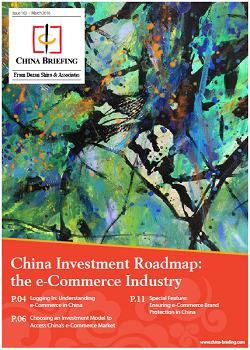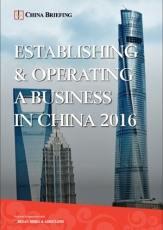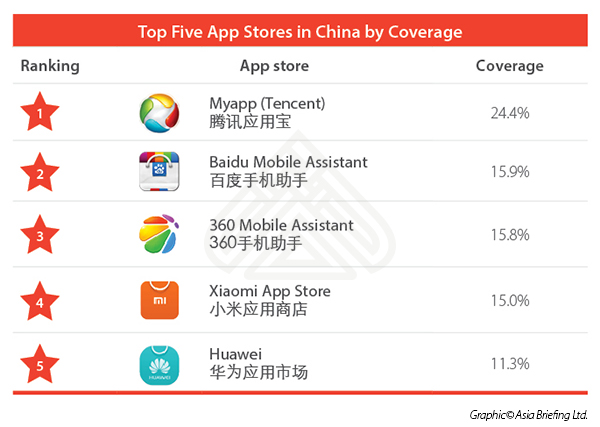At Your Fingertips: Approaching China’s Mobile App Store Market
By Zolzaya Erdenebileg
According to a notice released by the Cyberspace Administration of China (CAC), all mobile application (“app”) stores in the country are required to register with the government. Effective since January 16, 2017, the notice cites the dangers of illegal information, user rights violation, and security risks that can be spread through mobile apps. By requiring app stores to register, the notice clarifies that legal responsibility for app and app store content lie with the app store. This latest attempt by the Chinese government to increase regulatory control over the mobile information and services underscore the growing importance of the industry.
China is gaining center stage in the so-called process of ‘appification’, where webpages are translated onto mobile operating systems for ease of access and use on smartphones. In other words, the mobile app is becoming the main user interface, and in the process, changing the ways in which people consume and businesses sell.
The growth of mobile apps
In 2016, total worldwide downloads from the iOS App Store and Google Play increased by 15 percent, exceeding 90 billion downloads, and smartphone users spent almost 900 billion hours on apps, an increase of 25 percent from 2015. This global growth was due largely to movement in China. In fact, China contributed almost 50 percent to the iOS App Store’s annual growth. In the third quarter of 2016, the Chinese market created over US$1.7 billion in iOS revenue. China now leads the market by more than 15 percent over the next largest market, the US. This command is only expected to widen as internet penetration increases and the Chinese app market continues to mature.
The mobile app market in China is particularly conducive for future growth. Compared to US or UK users, Chinese consumers use more apps on average per month. According to App Annie, an app intelligence firm, the average Chinese consumer uses an average of almost 40 apps per month, while the average American consumer uses about 35. Chinese consumers now spend five times more in the App Store than they did a mere two years earlier.
A burgeoning Chinese mobile app market
App Annie predicts that China will have the largest revenue growth of any country by 2020. Games were the most popular downloads in the third quarter of 2016, making up 75 percent of all revenue. However, entertainment and video streaming apps grew significantly, and mobile shopping apps show great promise. Social networking apps, such as Tencent’s QQ messaging app, also performed well, seeing its largest increase in revenue thus far.
![]() RELATED: Information Technology-based Solutions from Dezan Shira & Associates
RELATED: Information Technology-based Solutions from Dezan Shira & Associates
Android is increasing its share of sales in the Chinese market, while iOS has had a harder time. However, Google Play is blocked in China, allowing for several domestic firms to grow and prosper in its stead. There are over 200 app stores in China, and about 54 percent of all app users go through third party app stores. Large domestic companies, like Tencent, Qihoo 360, and Baidu, have created their own stores, which have performed well.
The top five android app stores in China, ranked by coverage, are the following:
Regulating the market
The fragmentation of the market makes it difficult for the government to regulate, and can lead to a proliferation of viruses. China is one of the markets most affected by malware infection. According to Cheetah Mobile Security, more than 1.4 million mobile devices were contaminated by viruses as of January 2016. With the CAC notice, the government is signaling its intent to crack down on this issue, but whether it will have much effect still remains to be seen.
Key takeaways
China’s growth in mobile app usage and the bright future of the market is attracting app developers from all over the world. However, industry competition is fierce, with top international companies targeting the market, and strong performance from local teams as well. Government regulatory oversight is likely to expand and continue to influence the development of the industry, making a clear understanding of China’s idiosyncratic cyber security laws all the more important for foreign entrants.
|
Asia Briefing Ltd. is a subsidiary of Dezan Shira & Associates. Dezan Shira is a specialist foreign direct investment practice, providing corporate establishment, business advisory, tax advisory and compliance, accounting, payroll, due diligence and financial review services to multinationals investing in China, Hong Kong, India, Vietnam, Singapore and the rest of ASEAN. For further information, please email china@dezshira.com or visit www.dezshira.com. Stay up to date with the latest business and investment trends in Asia by subscribing to our complimentary update service featuring news, commentary and regulatory insight.
|

 China Investment Roadmap: the e-Commerce Industry
China Investment Roadmap: the e-Commerce Industry
In this edition of China Briefing magazine, we present a roadmap for investing in China’s e-commerce industry. We provide a consumer analysis of the Chinese market, take a look at the main industry players, and examine the various investment models that are available to foreign companies. Finally, we discuss one of the most crucial due diligence issues that underpins e-commerce in China: ensuring brand protection.
 Internet Challenges & Solutions When Doing Business in China
Internet Challenges & Solutions When Doing Business in China
In this special edition of China Briefing magazine, we highlight how and why foreign companies will be negatively affected by China’s internet, and provide methods to help solve these problems. We discuss ISP selection, internet connection types, CDNs and VPNs, and internal control systems. Finally, we examine the importance of network security in China and how it can help augment a company’s internet connection.
 Establishing & Operating a Business in China 2016
Establishing & Operating a Business in China 2016
Establishing & Operating a Business in China 2016, produced in collaboration with the experts at Dezan Shira & Associates, explores the establishment procedures and related considerations of the Representative Office (RO), and two types of Limited Liability Companies: the Wholly Foreign-owned Enterprise (WFOE) and the Sino-foreign Joint Venture (JV). The guide also includes issues specific to Hong Kong and Singapore holding companies, and details how foreign investors can close a foreign-invested enterprise smoothly in China.
- Previous Article Understanding China’s Simplified Enterprise Deregistration Process
- Next Article An Introduction to Doing Business in Hong Kong 2017 – New Publication from Dezan Shira & Associates










